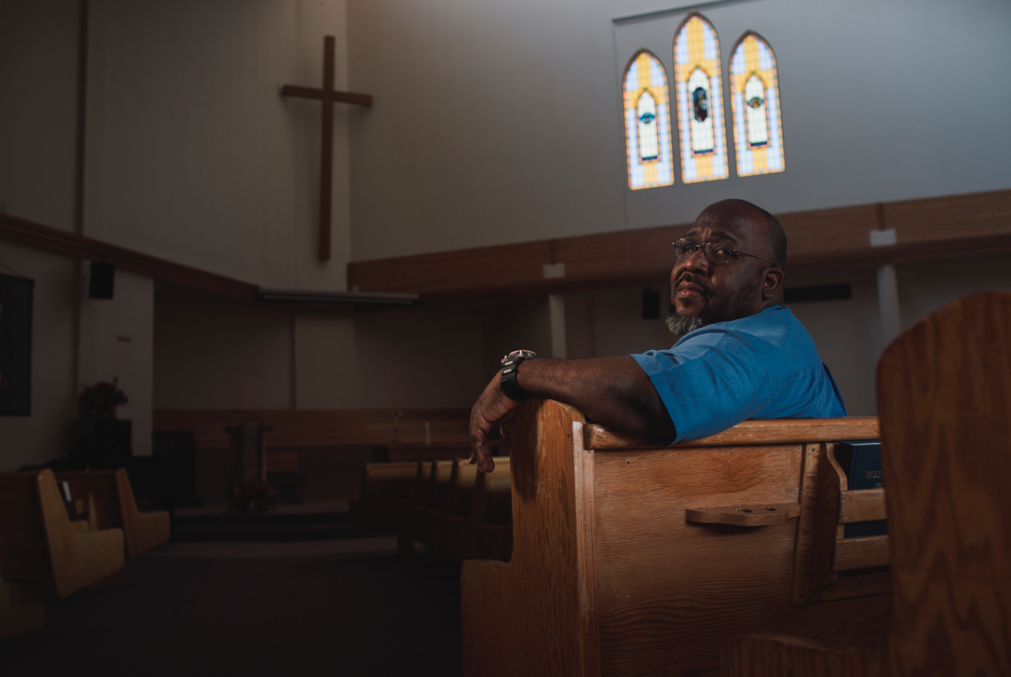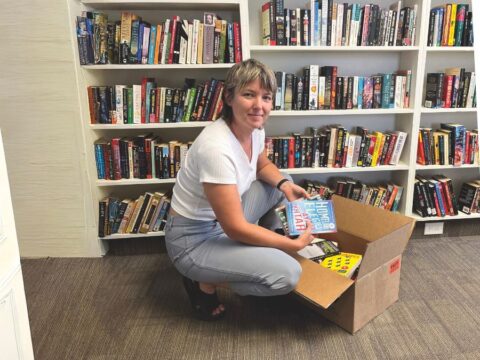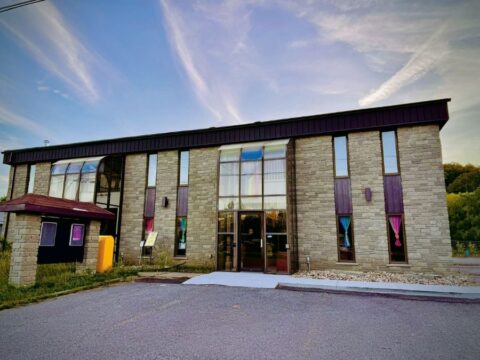One of my sons works at a large hardware store here in Fort Saskatchewan, Alta. He came home shaken one evening. He was helping a customer, who said to him, “you are a helpful coloured person.” The comment made him uncomfortable. He reported the situation to one of his supervisors and found himself having to defend how he was feeling. He came from the entire experience feeling shaken and unsafe. It was yet another example of racism in Canada and yet I did not need it or any other experience to confirm what I know already. I can recall that I was once told by a member of the church that my ability to speak English effectively is a credit to people of my race.
Racism in Canada expresses itself differently than in the United States, but it exists and many in this country have felt its ugliness. I am offended when people say that racism is not as bad as it is in the U.S. To say this is to negate the hurts of those who have experienced it. It is to argue that although the pain is real and the experience is dehumanizing, it could be worse, so keep quiet. It is to ask me, and others, to shut up and disappear. It is ultimately a failure to take racism seriously and face it.
You may unsubscribe from any of our newsletters at any time.
James Baldwin once said, “Not everything that is faced can be changed; but nothing can be changed until it is faced.” The recent killing of George Floyd by Minneapolis police has awakened feelings of injustice and anger felt by Black people in the U.S. and across the world. Floyd’s death must be viewed along with that of the many Black people in the U.S. who have been killed by white people without justice for their deaths. But injustice against Black people, those who are Indigenous, Latino and of Asian heritage also exists in Canada. While we can acknowledge racism, there seems to be a degree of impotence in our society when it comes to doing anything about it.
“Not everything that is faced can be changed. But nothing can be changed until it is faced” James Baldwin. On this day in 1987, James Baldwin passed away at the age of 63. While he may be gone, his work continues to influence and inspire millions of people including myself. pic.twitter.com/uFaCUSgbxF
— COMMON (@common) December 2, 2018
Black people are angry. Why is it that Black lives seem to matter less than others? What could Floyd have done to require police officers’ knees to be on his neck and back to subdue him? What we are seeing are not simply demonstrations against injustice, but the frustration and anger of those who have been waiting a long time for a new day. It is also a response to cries that are being ignored, for platitudes offered in the face of deep hurts and lives appearing to be devalued by superficial responses and excuses offered in the past. I am not condoning or supporting violence or looting. However, before we raise our flags of righteous indignation, I would urge us to spend some time appreciating the underlying issues.
As a United Church of Canada minister, my question is also, how can we in the church rid ourselves of the systemic racism which is part of the fabric of our institutions? The United Church has been looking at the issue for the past 40 years. After so much discussion, we should be able to say that racism does not exist among us. Yet to assert this would be either willful ignorance or a lie. What more needs to be done so that communities of faith do not treat Indigenous, Black, Asian, or Latino persons and other racialized ministers as second-class members of the church? What more needs to be done so that ministers are not mocked, ridiculed and ostracized because of their accents? What more do we need to do to make us not assume that the default person to assume leadership in our church must be a white person? What more needs to be done to eliminate the callous comments that some Black ministers receive from congregants? What more must we do?
More on Broadview: What I need from white people
The United Church of Canada needs to be an anti-racist church. That means that it is willing to intentionally change systems and procedures that are or may be racist. It means that we are willing to do the hard work of hearing the hurts of the racialized in our church and to act in solidarity with them. It means that we will have a zero-tolerance stance about racism either within our walls or in society at large.
We cannot face racism out of only shame or outrage. Neither can it be because it leads the evening news. In many parts of Canada, Black people are more likely to be stopped and carded by the police. Many Black professionals are either ostracized or face obstacles because of their race. The Edmonton Journal recently revealed that in 2018, an Edmonton police officer used his knee on the neck of a Black man for at least 12 seconds.
Here in The United Church of Canada, a Black minister will find it more difficult to find a call or appointment than their white colleagues. Just last year, a minister left the church because he was mocked for his pronunciation of English words and given a public lecture on how to speak English during his sermon. Since living in Canada, my sons have been told, more often than we can count, “N**r, go back to where you came from.”
So, yes, racism exists in Canada and it will continue to unless we are willing to face it. Until then, lives will continue to be at risk. George Floyd, Ahmaud Arbery (Georgia), Abdirahman Abdi (Ottawa), Lester Donaldson (Toronto), Regis Korchinski-Paquet (Toronto) and many more have died, and if we fail to confront and deal with this evil, then all of us will be responsible for the deaths of countless others. Until then, I guess I will also continue to be seen by some as that “helpful coloured person.”
Rev. Paul Douglas Walfall is the minister of First United in Fort Saskatchewan, Alta. He is a member of the General Council Executive and the Anti-Racism group of the General Council Executive.
I hope you found this article from Broadview engaging. The magazine and its forerunners have been publishing continuously since 1829. We face a crisis today like no other in our 191-year history and we need your help. Would you consider a one-time gift to see us through this emergency?
We’re working hard to keep producing the print and digital versions of Broadview. We’ve adjusted our editorial plans to focus on coverage of the social, ethical and spiritual elements of the pandemic. But we can only deliver Broadview’s award-winning journalism if we can pay our bills. A single tax-receiptable gift right now is literally a lifeline.
Things will get better — we’ve overcome adversity before. But until then, we really need your help. No matter how large or small, I’m extremely grateful for your support.
Jocelyn Bell
Editor/Publisher















A case in point today. The well-known broadcaster who got in trouble today for reading out a taboo word in a quotation should have left out the word and stated she was leaving it out for obvious reasons. My grandparents (we’re all white in my family) wouldn’t have used that word 100 years ago and they grew up in the American southern states.
I am an old white guy. I have no right to say I am not racist. That determination is not mine to make. If I speak or act in a manner another finds hurtful, I ask, please call me out. Be the voice of God for me. « Teach me thy ways, Oh Lord. » I exercise only the power of one old man. I control no « «systems,» and hence, can change only myself